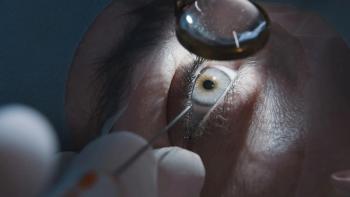
10 tips for reducing staff time on managed vision care plans
How can your office avoid spending a lot of staff time on patient vision care plan questions and better ensure that you get paid? We asked optometrists on ODs on Facebook and ODwire how they handle this common problem.
Managed vision care plans. Some practices participate in many panels, some very few or even none.
How can your office avoid spending a lot of staff time on patient vision care plan questions and better ensure that you get paid? We asked optometrists on ODs on Facebook and ODwire how they handle this common problem.
Find out what they had to say.
Harry G Churchill Jr., OD, Plymouth, MD
Via ODs on Facebook
All patients are told we need at least 24 hours to verify insurance. Our self-pay field even has the part to tell this to patients so they don’t show up with a recently found insurance.
More practice management:
Jeff Kiener, OD, Columbus, OH
Via ODwire
While we try to be helpful, it’s ultimately the patient’s responsibility to know what his coverage is before the date of service. We often direct him to his employer’s human resources department, if applicable.
If the coverage isn’t identified and verified beforehand but the patient is in a hurry to receive services, we let him know that he is welcome to pay cash and perhaps submit for reimbursement himself, later. We strongly discourage re-billing.
Vision care plans could be immensely more helpful by supplying even the most rudimentary of insurance cards, regardless of how it affects their utilization rates.
More practice management:
Michael Davis, OD, Randallstown, MD
Via ODs on Facebook
The best tip is not to take vision care plans in the first place. Short of that, get all of the information and approvals ahead of time. If that is not possible, the patient pays U&C and receives an itemized receipt to submit on his own.
More practice management:
Diane L. Giffen, OD, Cleveland, OH
Via ODwire
Sometimes this website can help:
I search the plans I take. If the patient has a plan I do not accept, the patient pays up front and receives a receipt with all the codes necessary to submit the claim himself for reimbursement. This assumes there is no medical condition for which I can bill his medical plan.
More practice management:
Sandy Kozel-Diamond, OD, Little River, SC
Via ODs on Facebook
We refuse to schedule a patient unless she knows the name of her carrier.
We say, “We are not providers for most plans. Please check with your human resource director for the name of the plan and if we are in network.”
We take only three plans, so it’s easy to name them.
I will not make my staff sit on hold or check multiple websites. Patients have to take some responsibility in their care. We pull authorization 48 hours before the appointment. If the patient is not eligible, she is given a courtesy call to see if she wants to self pay or reschedule.
Blog:
Steve Silberberg, OD, Matawan, NJ
Via ODwire
These problems should be solved over the phone when the patient makes the appointment. If you reschedule the patient after he arrives, you lose the time slot, which is much more valuable.
More practice management:
Nepa Bhadra, OD, Alpharetta, GA
Via ODwire
We ask for all insurance information on the phone when the appointment is made. If the patient doesn't know her vision plan, we ask her to call her HR department to find out, or if we are not too busy we look her up in the two vision plans we take.
If the patient wants to know every possible copay or to explain her plan in great detail, we ask patient to contact her vision plan for more information.
More practice management:
Richard Pagan, OD, Pine Bush, NY
Via ODwire
Verify benefits before the visit 100 percent of the time or you have only yourself to blame. Either you accept the risk of not being paid or you don’t. The reality, however, is that the patient is still responsible for all the charges, and you have every right to collect.
More practice management:
Greg Ray, OD, Clarksville, TN
Via ODwire
If patients don't know their insurance information, we either charge the patient that day or reschedule him for when he does know. It's not our job to pull out the crystal ball and try to figure this stuff out. This doesn't come up often, but when it does, if you're not careful, it can waste valuable staff time-we just don't let it get out of hand.
We do try to get all the information before the patient comes in, but there are always surprises, it seems.
Blog:
Anup Panjwani, OD, Vienna, VA
Via ODwire
Many problems come from the patient not knowing what vision care plan he has-forget about him knowing the ID number. It should be federal law that if you have a vision care plan, you are required to give all your members an ID card annually. If medical insurance plans listed this information on their own insurance cards as well, that would help. At minimum, if medical plans listed the patient’s vision care plan that they co-sell or automatically tie into the patient’s medical insurance on their own eligibility and benefits website, we as providers could have a clue where to look.
Ultimately if the front desk staff is busy and patients don’t know their coverage, we give patients the phone and show them where on the card they can call customer service of their health plan to figure it all out. One trick is to check our database for past family members’ coverage from the past years-that can help.
Related:
Newsletter
Want more insights like this? Subscribe to Optometry Times and get clinical pearls and practice tips delivered straight to your inbox.





